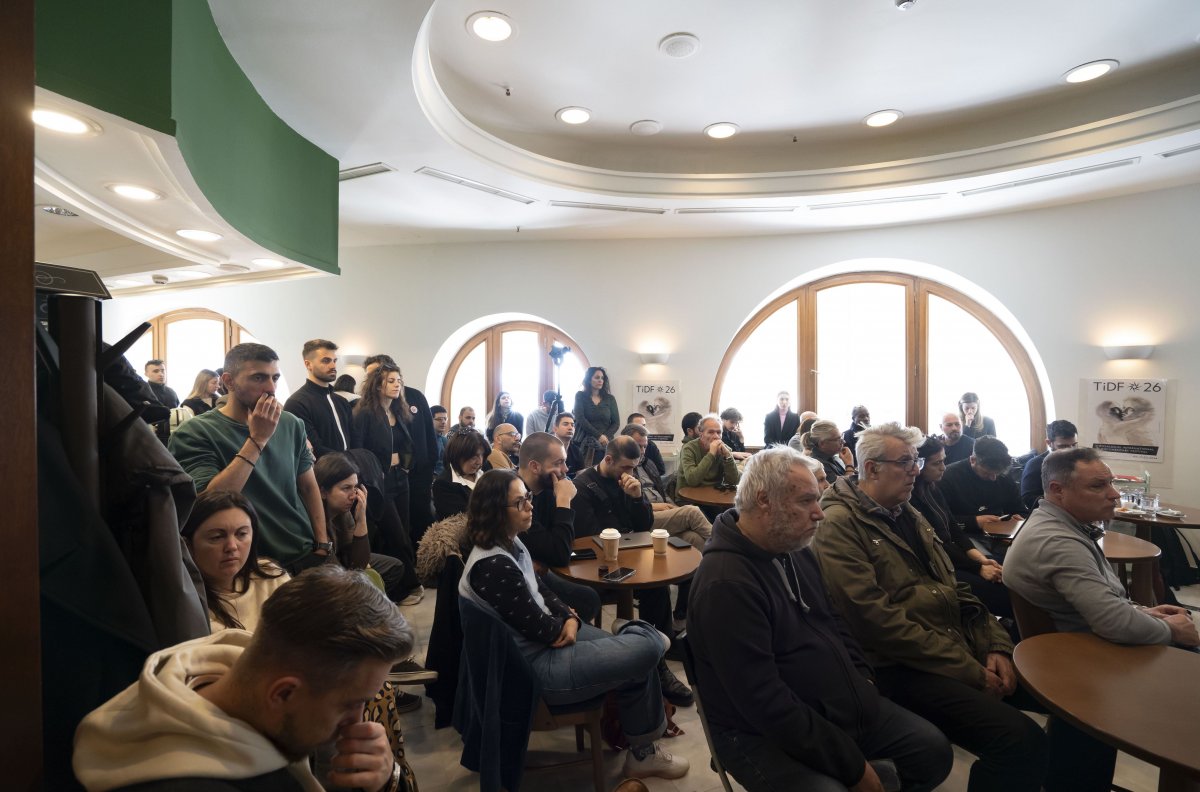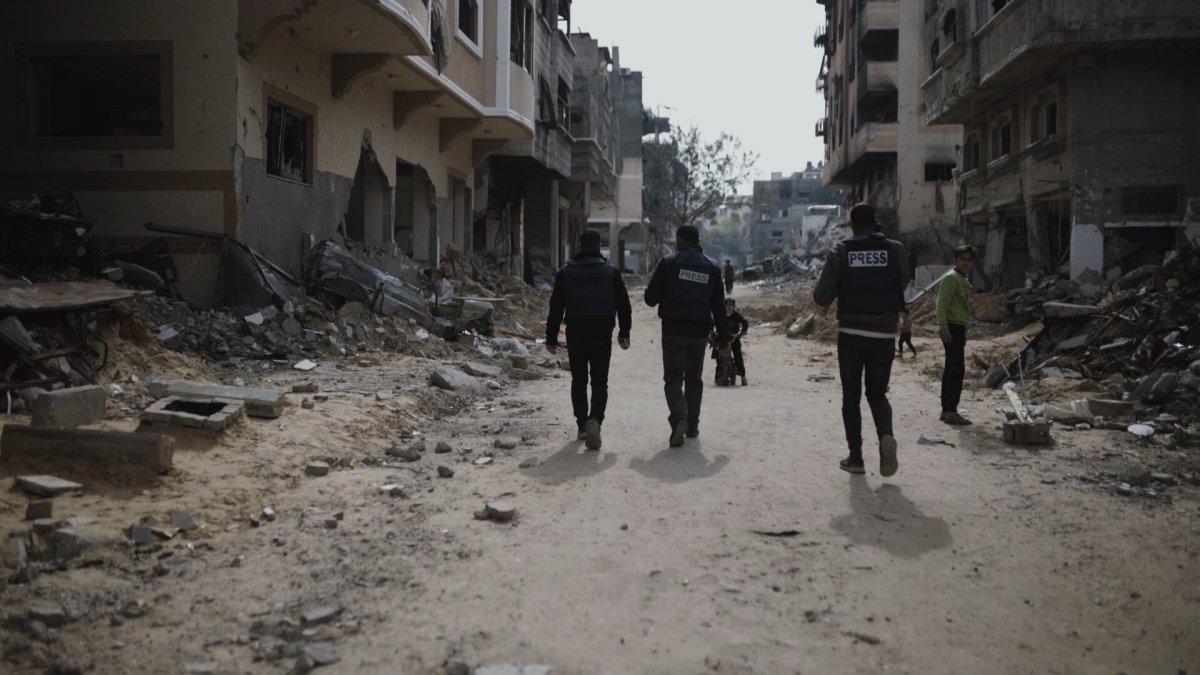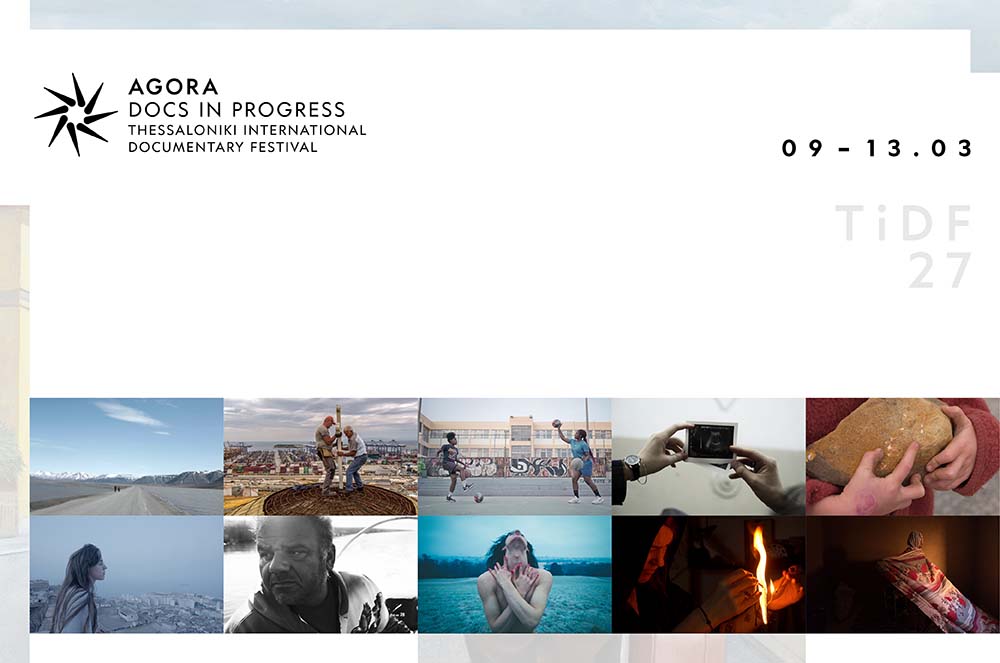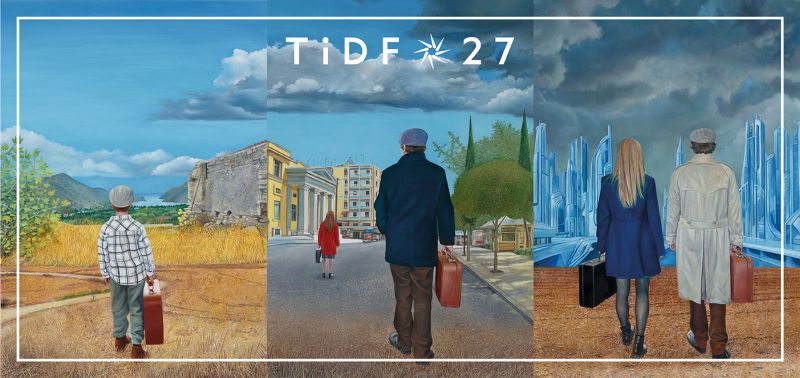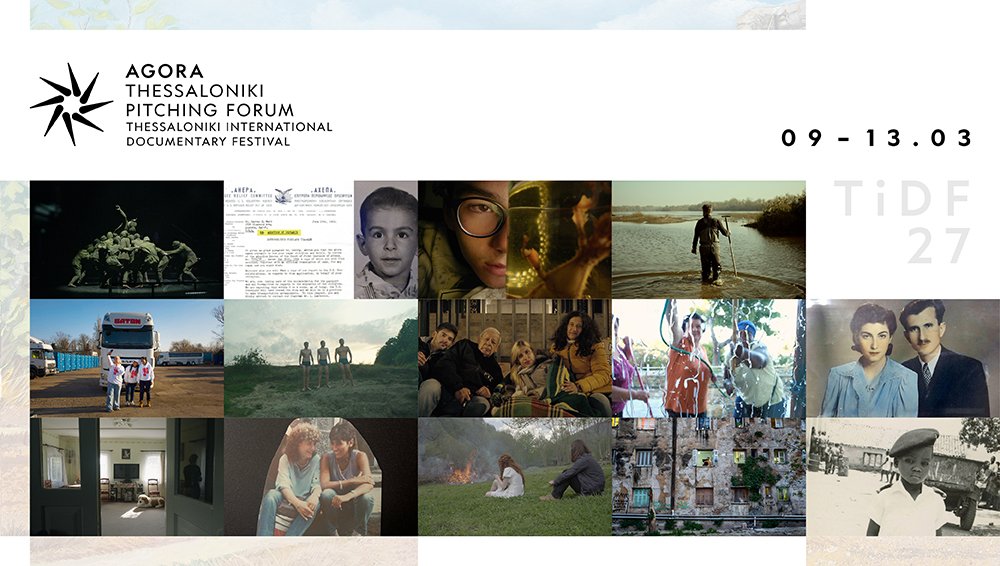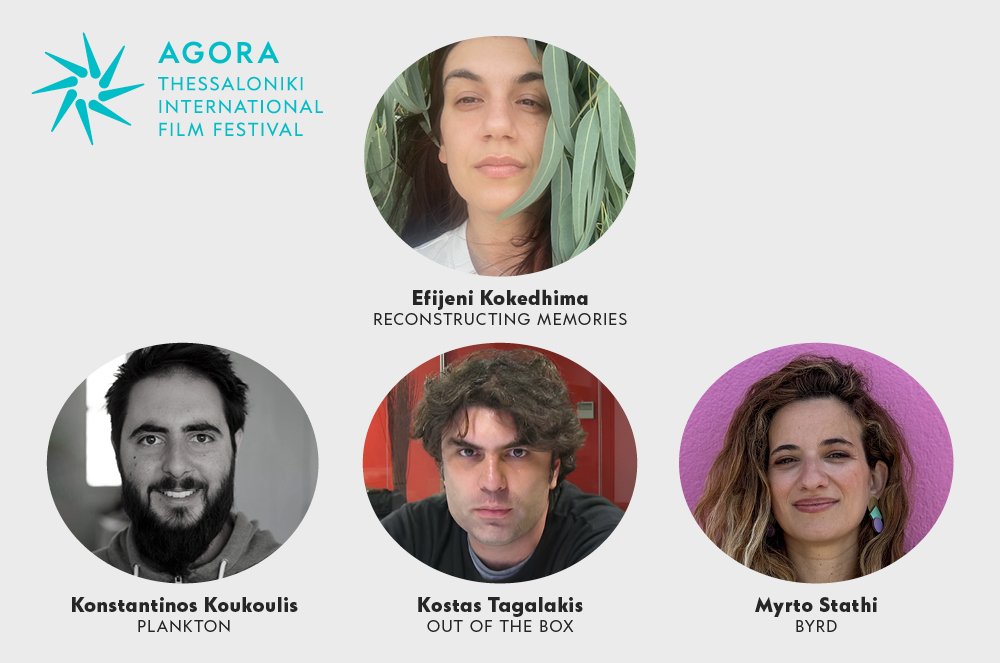Hooligan Express, an audio documentary by the non-profit journalism organization iMEdD, was presented at a special hearing at the Green Room, on Thursday March 14th, as part of the 26th Thessaloniki International Documentary Festival. The podcast is based on a long term investigation that began after the fatal injury of Michael Katsouris and ended with the closing of football stadiums due to the murder of police officer George Lyggeridis and will be available on podcast platforms and lab.imedd.org on March 28th.
The hearing was followed by a discussion with creators Kostas Koukoumakas (journalist, iMEdD), Panagiotis Menegos (journalist, iMEdD Podcasts content & production manager) and George Schinas (journalist, iMEdD). The discussion was moderated by Giorgos Toulas, journalist (Parallaxi).
The event was introduced by Dimitra Nikolopoulou, the Festival's Head of Communication: "In this Documentary Festival we have been very concerned with the expressions and manifestations of violence. Violence is everywhere in the films screened at the Festival where those films’ creators try to decipher it under extremely adverse conditions. They also try to show its many faces and highlight its causes. It is very important for us to promote and present works that have the power of documenting, but also the power of investigative journalism. That's why we're excited to hold this public hearing today with the non-profit journalism organization iMΕdD, operating with exclusive support from the Stavros Niarchos Foundation. The journalists who are here with us today have very important discussions throughout the year, and all this effort results in a work, which was researched deeply. I want to give the floor to the people who did this podcast, Giorgos Schinas, Panagiotis Menegos and Kostas Koukoumakas, but also to the journalist and friend of the Festival Giorgos Toulas, a man who knows about the culture and issues of Thessaloniki and who will moderate this discussion", he said before giving the floor to Panagiotis Menegos.
"I welcome you and thank you on behalf of iMΕdD. With our team we have been following for a few months the phenomenon of sports violence on the occasion of the tragic death of Michalis Katsouris in the events of Nea Filadelfia last August. We created a 3-episode podcast series, Hooligan Express, trying to see the way hooliganism has changed, since it was first encountered both as a word and as a phenomenon in Greek society, from the 80s until 2024. Nea Filadelfia, Zagreb, Thessaloniki: We travel through time and space, we go back and forward to talk about this phenomenon", said Mr. Menegos.
After the hearing of the three episodes in the Green Room, Giorgos Toulas took the floor: "I would like to thank the Festival, always present, leading us from the darkness into the light. We are going through the brightest days of the Festival, with a series of great collaborations and tributes, during the darkest week for Thessaloniki, with a number of incidents taking place," he stressed. "I also want to thank iMΕdD, I will always be there at every event I am invited in, because journalism can also lead us from darkness into the light, and iMΕdD is an outstanding organization that actively supports journalism", he said. "There are only a few of us who do investigative journalism in Greece. When two years ago we did Faces of Violence in Parallaxi, the most difficult part was the conversation with Alkis Kambanos' father. Back then, we thought that these were the only faces of violence. This week, however, demonstrates to us that violence is multi-dimensional. All that is happening goes beyond the stadiums or any specific city neighbourhoods. We are talking about a homophobic attack in the Olympion, the most central square of the city, and on the other hand, people who wanted to stop a screening," he said before asking the podcast creators about the obstacles they encountered in their research.
Panagiotis Menegos was the first to speak: "We are not talking about sports violence, but about social violence with sports fan characteristics. You heard a lot of people in the podcast who wanted to remain anonymous or have their voices changed. It is not easy to talk about these issues. Nor is it easy to categorize them: these persons of violence have ambiguous and conflicting identities, a fact that discourages us from talking about them in an explicit way. The way we label sports teams and fans changes rapidly", he said and gave the floor to Kostas Koukoumakas: "We had some difficulties, as expected, when you do something that is handmade. We had to gain trust, though many refused to talk. The really impressive thing is that the ultras have severe disputes, but they follow a common code and have the same background," he stressed out.
Mr. Menegos, speaking about the Bad Blue Boys of Dinamo Zagreb, underlining the constant danger of "falling in love" with your interlocutors and forgetting the reason why you have been there. George Schinas agreed on the latter and stressed the importance of useful information in journalism, but also how necessary it is for a journalist not to make heroes or criminalize from the outset all involved in his research. "You can't solve all the issues of social violence in 64 minutes," Menegos added.
At this point, Giorgos Toulas referred to the differences of fan expression over the years: "I was born in Toumba, and whenever I get there I understand that the stadium then, has nothing to do with the stadium of today. It is a completely different situation. Today's children have been through the hell of an economic crisis. Violence has spilled over into society. On Sunday night we saw the many conflicting faces of violence, from Aristotelous to Achillion and a bus in Stavroupoli. The system itself uses violence," he concluded, asking the creators of the podcast about the conclusions they drew after their research on sports violence.
Kostas Koukoumakas said: "The one who can stop something is the one who has the power to do so: the state, the police and the sports teams’ owners. There are retired police officers who become security advisers to a sports team. Generally speaking, it is not the crisis that is to blame, we have to start with those who have the power to create the shape of violence." In a question about the suppression of violence in the English league, Koukoumakas replied that Thatcher’s approach was economic, turning the sport into a very expensive hobby for the working classes of Great Britain, while violence continued to exist outside the stadium.
Panagiotis Menegos said that the big change in football took place in the early ’90s with the Champions League and the Premier League, because then the accessibility of the sport for the public changed: "Football saw a huge cost increase because its market grew so much. The tickets were too expensive. At the same time, in Greece, the world of football made a decision to start embracing the underworld, it did not make “clean house” and did ban anyone, as it happened in Europe. And when I say underworld, I don't mean the people in the stands." He went on talkινg about the conflicting identities of the fans: "We grew up with some stereotypes about certain characteristics of fans. At some point you realize that things are so confusing that you can't draw conclusions because it's too slippery."
George Schinas referred to a description of James Montague, English researcher, heard in the podcast, about the profile of ultras: too white, too male, too working class, a social identity that facilitates potential recruitment from specific political environments, without this meaning that all followers are far-right. "Today, unfortunately, the far right is anti-systemic", Kostas Koukoumakas added. "In the past, young people who were antisystemic became anarchists, as simple as that. Today they go the other way. In the past, they attacked the one they perceived as powerful, the mayor, the police or the state. Today, they systematically attack the weak, the migrant, the most vulnerable. It goes without saying that they are also attributed a tendency towards the far right, without this being the norm," he concluded.
"Every era is a polaroid of the moment," added Giorgos Toulas. "We have before us the European elections where people vote with even looser protest criteria, so those who fish in the murky waters of this era should take the opportunity to rally them. That's the reason why all this populist rhetoric is being heard from all these people. I'm sure we'll see extreme things happen in these upcoming European elections." At this point, Mr. Menegos added that there are no bleachers "uncontaminated” by far-right formations in Europe.
At this point, Dimitra Nikolopoulou thanked all participants and creators for their interventions: "I will wrap up with a comment: one of the things we can do is to be closer to each other. In this festival we do so, we present documentaries that show exactly that. By watching some documentaries that work exponentially, we shift and change the way we think about what's going on. I will keep what Giorgos said, what is happening is a polaroid of society today. It is time to tear it up and pull out a new one."


